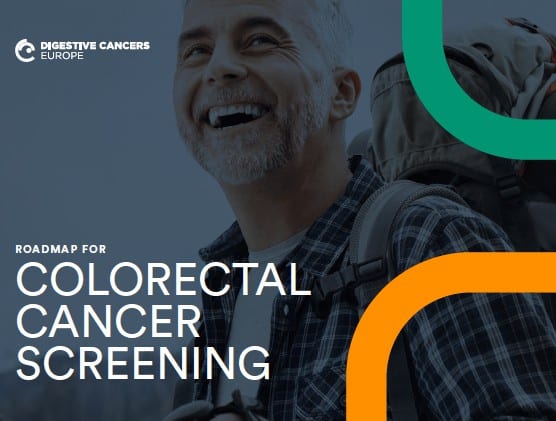DiCE Releases the CRC Screening Roadmap

In parallel to the White Paper on Colorectal Cancer Screening, we also present the Roadmap for Colorectal Cancer Screening. The first document is directed at policy-makers and highlights what needs to change in health policy to save hundreds of thousands of lives, the latter describes in a step-by-step approach how a colorectal cancer screening campaign should be set up. This approach is based on the experience of the three best practices in Europe: the Netherlands, Slovenia and the Basque region in Spain. All three examples have managed to achieve colorectal cancer screening participation rates between 62 and 72%, and at the same time significantly increasing the number of early stage diagnosis, resulting in better overall survival, and even reduction of the incidence (the number of patients diagnosed with colorectal cancer), because so many polyps were detected in a pre-cancerous stage. The Basque country demonstrated that colorectal cancer screening is not only cost-effective, but over time even cost-saving.
The three successful screening programmes have some elements in common:
- Involvement of all stakeholders from the start to create a fully integrated and inclusive plan
- Learning from other countries to apply best practices and to avoid common mistakes
- Ambitious, sustained and long term perspective with support of all political parties and solid investments
- A solid combination of healthcare hardware (operational organisation, laboratories, hospital capacity) and software (psychology, sociology, …)
- Good integration of databases, registries, analyses and communication
- Pilot Projects to test the system
- Training, education and certification
- Investments in ideal capacity track of testing, colonoscopy and surgery
The best practices also show that the higher the participation rate of the population, the better the cost-effectiveness becomes.
Colorectal cancer is a disease that evolves very slowly, sometimes even as long ten years between colon polyps and a late stage tumour. The problem with colorectal cancer is that the symptoms can only be identified by the patient once the disease is well advanced. If we only rely on patient-reported symptoms, we are too late to offer patients a good chance of survival. That is why screening is so critical. In Europe, only 15% of patients are diagnosed at stage I, when they have a chance of survival of 90% and more. The best practices in our Roadmap demonstrate that they are able to increase to 48% of patients now diagnosed at stage I.
The Roadmap offers an initial blueprint on how to set up a colorectal cancer screening campaign. The best practices exist. There is no reason not to apply them.
Click here to read and download the Colorectal Cancer Roadmap.
Guido

